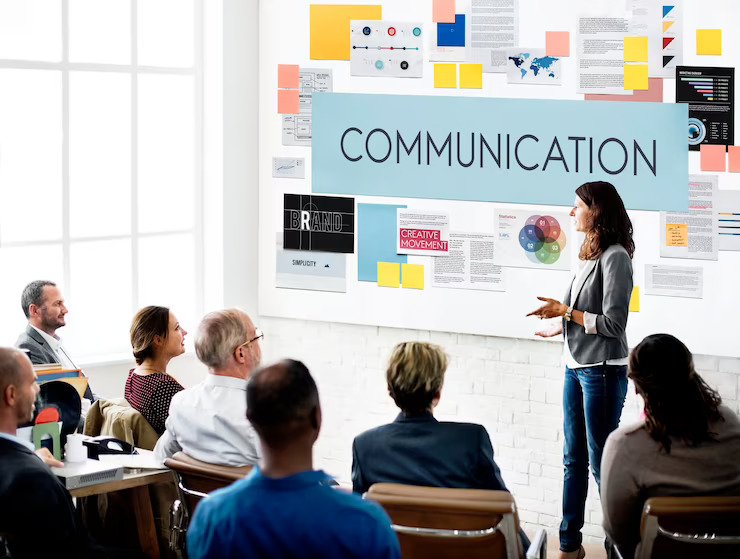- 1.1 Listen actively
- 1.2 To be an active listener, you should:
- 1.3 Communicate clearly
- 1.4 To communicate clearly, you should:
- 1.5 Collaborate effectively
- 1.6 To collaborate effectively, you should:
- 1.7 Be mindful of your audience.
- 1.8 Be a Team Player
Effective communication is crucial in every workplace but is especially vital in social enterprise. As a social enterprise professional, your ability to communicate with colleagues, customers, and stakeholders can make or break your business. Poor communication can lead to misunderstandings, misaligned goals, and a lack of trust, while effective communication can build stronger relationships, foster innovation, and lead to better business outcomes.
In this article, we’ll explore some practical ways for individuals to improve their communication skills in the workplace, with a specific focus on social enterprise. We’ll cover everything from how to communicate your ideas more effectively to how to collaborate with colleagues to how to build stronger relationships with customers and stakeholders.
So, if you want to boost your workplace communication skills and take your social enterprise to the next level, keep reading!
Effective ways for individuals to improve their communication skills in the workplace:
Listen actively
Listening actively is one of the most effective ways to improve your workplace communication skills. This means paying attention to what your colleagues, customers, and stakeholders are saying and trying to understand their perspective.
To be an active listener, you should:
- Focus on the speaker and avoid distractions
- Ask questions to clarify what they are saying
- Paraphrase what you hear to ensure you understand
- Avoid interrupting the speaker
- Provide feedback to demonstrate that you are listening
- Active listening can help you build stronger relationships, avoid misunderstandings, and gain valuable insights.
Communicate clearly
Another essential aspect of effective workplace communication is clearly communicating your ideas. This means expressing yourself in a way that is easy to understand and free of jargon or technical language. Clear communication is the backbone of any successful workplace interaction, and it’s essential when conveying complex ideas, solving problems, or collaborating with colleagues.
To communicate clearly, you should:
- Use simple language and avoid technical jargon
- Organize your thoughts before speaking
- Speak at an appropriate volume and pace
- Use visual aids to help convey your ideas
- Be mindful of your body language and facial expressions
- Clear communication can help you communicate your point more effectively, build consensus, and avoid misinterpretation.
Collaborate effectively
Collaboration is essential to social enterprise, and effective communication is necessary for successful collaboration. To collaborate effectively, you need to be able to communicate your ideas, give and receive feedback, and work towards a shared goal.
To collaborate effectively, you should:
- Clearly define roles and responsibilities
- Set clear goals and objectives
- Establish clear lines of communication
- Foster a culture of trust and openness
- Encourage feedback and constructive criticism
- Effective collaboration can lead to better outcomes, increased innovation, and stronger relationships.
Be mindful of your audience.
Another essential aspect of effective workplace communication is being mindful of your audience. People have different communication styles, preferences, and needs, so it’s vital to tailor your communication style to your audience. Follow these steps:
- Understand your audience’s communication preferences and needs
- Use language and examples that resonate with your audience
- Adapt your communication style to your audience
- Use appropriate tone and style for the situation
- Being mindful of your audience can help you build stronger relationships, avoid misunderstandings, and ensure your message is well received.
Be a Team Player
Being a team player is crucial for improving communication in the workplace. Fostering a sense of camaraderie and collaboration will strengthen your relationships with your colleagues and create a more open and supportive work environment. Let’s explore what it takes to be a true team player.
Encourage open dialogue:
Don’t be afraid to initiate conversations. Create a safe space where everyone feels comfortable sharing their thoughts and opinions. Encourage your colleagues to express their ideas, concerns, and suggestions without fear of judgment.
Offer constructive feedback:
Remember that feedback is a two-way street. Offer your colleagues constructive feedback that focuses on their work, not their personality. Be specific about what they did well and what could be improved.
Stay open to receiving feedback:
Nobody’s perfect, and we all have room for improvement. Be open and receptive to feedback from your colleagues and supervisors.
The Bottom Line
In conclusion, improving your communication style in the workspace is a journey that requires dedication, self-awareness, and a willingness to adapt. By focusing on active listening, clear and concise speech, appropriate body language, and being a team player, you’ll find that your interactions at work become more meaningful and effective. So, how should I improve my communication style in the workspace? Embrace these tips, be open to feedback, and don’t be afraid to grow and learn from your experiences.
